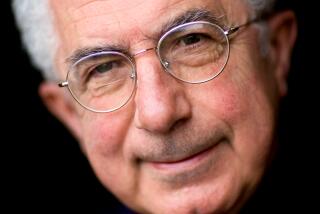Islam Must Challenge Its Dark Doctrines
- Share via
In the emerging debate over how extensively to define the enemy facing the West we need to avoid both wishful thinking and hysteria.
The minimalists who insist that the enemy is only a small band of fanatics around Osama bin Laden severely underestimate the penetration of extremist doctrine within much of mainstream Islam, especially in the Arab world. But those who invoke a war of civilizations--a conflict between Western democracy and international Islam--risk widening the circle of enmity to large parts of the Islamic world that have so far been immune to the appeal of jihad, or holy war.
Far from being regarded as fringe lunatics, the terrorists who struck against U.S. civilian and military targets are widely regarded as heroes within the Arab world. Religious edicts have been issued in Arab countries endorsing the attack, and thousands danced in the streets of the West Bank and Gaza. That pathological response isn’t just the result of anger at perceived injustice, but of years of hate indoctrination in mosques and from state-controlled media. Indeed, only in the Arab world is Holocaust denial a mainstream notion.
Islamic doctrine easily lends itself to extremist cooptation. Islam divides the world into two regions: Dar al Harb, or the house of war, containing all territories ruled by non-Muslims, and Dar al Islam, or the house of Islam, which is destined to dominate the former. In a world groping toward planetary interconnectedness, this Islamic doctrine--which justifies the madness of holy war--must be challenged by Muslims themselves.
Humanistic Muslims need to face the lethal consequences of their theology toward non-Muslims. Apologetics about the nobility of Islam aren’t good enough anymore. Just as much of Christianity has confronted its anti-Jewish theology, and many Jews are struggling to uproot the exclusivist strain within Judaism, tolerant Muslims can no longer afford to defend Islam’s more problematic concepts.
We are all heirs to complex religious traditions; the obligation of believers is to preserve the beauty of their faith while transforming its negative residues.
Those who try to shift the blame for the latest terrorist atrocities on U.S. support for Israel miss several key points. The Arab war against Israel isn’t over occupation but the right of a Jewish state to exist. Last year, at Camp David, former Prime Minister Ehud Barak offered to withdraw from almost all the territories and to share Jerusalem with the Palestinians--and the Temple Mount with Islam.
More broadly, the terrorist’s holy war isn’t aimed ultimately at Israel but the West. Muslim nations are among the most vociferous in ideologically opposing globalization--not just its excesses but also its blessings, like a free media and a sense of shared responsibility for international stability.
Indeed, perhaps Israel’s greatest offense to Arab sensibilities is its very Westerness, proof for many Muslims of its supposed colonialist essence.
Western standards of human rights--which Arab propagandists routinely use to excoriate Israel--are almost unknown within the Muslim world.
Still, it would be disastrous to declare Islam itself the enemy. For many Muslims, the doctrines of holy war and of Dar al Islam are irrelevant to their faith, and have in effect been allowed to lapse. Sufis, or Muslim mystics, go further, transforming holy war into a spiritual doctrine, a battle against one’s own imperfections.
Demonizing one of the world’s great faiths is an affront against all religions.
The terrorists want nothing more than to widen this war to include the whole Islamic world. And those in the Arab world--especially Yasser Arafat--who actively nurture the culture of terrorism yet pretend to condemn it hope to avoid the West’s judgment. Neither should be allowed to dictate the U.S. response to terrorism.
*
Yossi Klein Halevi’s latest book is “At the Entrance to the Garden of Eden: A Jew’s Search for God with Christians and Muslims in the Holy Land” (William Morrow, 2001).
More to Read
Sign up for Essential California
The most important California stories and recommendations in your inbox every morning.
You may occasionally receive promotional content from the Los Angeles Times.










